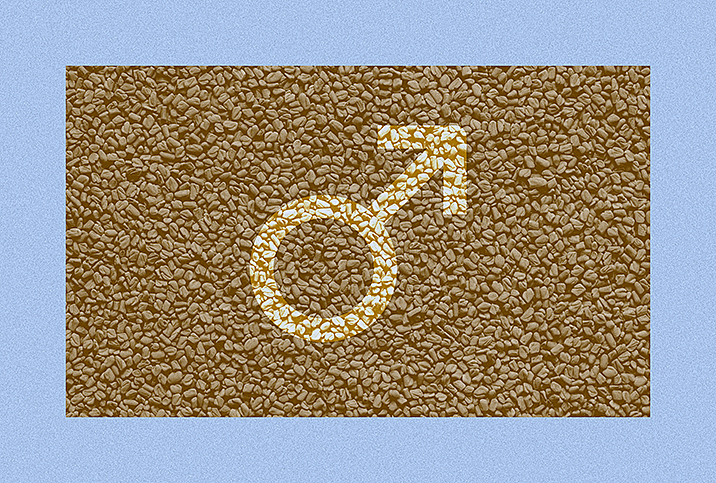Freezing Your Sperm 101

One afternoon about two decades ago, my husband Jon failed to come home from work on time and wasn't answering his phone. When he finally arrived, I could tell from his face that whatever had happened was grave. He threw himself down on the bed and announced his news through a mouthful of pillow: "I have testicular cancer."
He'd felt a lump in his left testicle when he showered, so he decided to pop into his neighbor's office—a urologist with whom he had attended medical school—at the hospital where he worked as a neurologist. The urologist examined him, immediately sent him for imaging and later that afternoon determined that he had a tumor. Surgery was scheduled within a few days.
In many ways, we were fortunate throughout the whole experience. His testicular cancer was stage 1. He didn't need chemo or radiotherapy (RT) afterward. And because Jon had been suffering for more than a dozen years from intractable ulcerative colitis, an inflammatory bowel disease that affects the large intestine, he'd undergone a painful but necessary colectomy only a couple of years earlier to reduce his very high risk of colon cancer. That intensive abdominal procedure carried a possibility that he'd end up sterile, and we had wanted another child.
Even though I wound up getting pregnant in the month of time before the colectomy, we had already investigated how to freeze his sperm. We knew, as Ellen Wood, D.O., reproductive endocrinologist/infertility specialist for IVFMD in Cooper City, Florida, suggested, that it should be done as soon as possible before there's a surgical threat to fertility and before further disease or treatment complications can reduce sperm count or motility.
This means not waiting until you find out what stage your cancer is or even contemplating whether or not you might want (more) children. For starters, testicular cancer is a young man's disease. According to Johns Hopkins Medicine, testicular cancer is the most common malignancy for men between 20 to 40 years old.
Although you may be young, don't delay storing your sperm
It might feel strange for males in their teens or early 20s to think seriously about dependents, whether or not they have partners at the time.
"A lot of people my age think about whether or not they want to have kids in the future," said Jack Weiss, 23, a stage 2 testicular cancer survivor and student from South Florida. "But having to make a decision that would impact that right now throws it right in your face." Still, he said, "You handle it and move on."
The survival rates of testicular cancer are north of 95 percent. That's why your age and personal life at the time of diagnosis shouldn't affect a decision.
"Freezing before cancer treatment is worth its weight in gold since testicular cancer is highly curable and you will probably be alive to have kids," Wood said. "It is unknown whether the sperm will recover after chemotherapy or RT. Better to be safe than sorry."
The process of leaving a sample—or samples, since Wood advises six to 10 separate semen deposits as a target to hit—is the same as it is for other in vitro fertilization (IVF) or intrauterine insemination (IUI) treatments. First, you need to find a sperm bank. You then make an appointment to leave a deposit so the sperm can be analyzed for quality, separated into small batches and frozen with liquid nitrogen to 196 degrees Celsius.
So…what are the costs?
Since there's often a narrow window of time between diagnosis and treatment in these cases, urology or oncology offices usually are able to recommend a sperm bank. Wood noted that for testicular cancer patients, "participating clinics charge 50 percent of the regular fees to freeze the sperm."
Home kits are also available for people who find them more convenient or comfortable. But just to be clear, these samples don't get stuck in with your ice cream and frozen pizzas. They're preserved with materials in the kit and sent back via courier. With sperm banking, fresh samples are key. Moreover, home kits aren't necessarily a less pricey option.
It can get expensive to store your sperm, which, once it's cryopreserved, lasts forever. Wood estimates that fees range from $75 to $200 annually. She recommended—and has used in her practice—Cryopoint, a long- or short-term fertility storage center in Indianapolis that services the nation.
"In order to help those in need, they offer storage for $75 per year to give cancer patients a safe, affordable option for fertility preservation," she said.
Weiss, who was 22 at the time of diagnosis, was told by doctors that even after his treatment, which included six rounds of chemo, there was a decent chance he would be able to have kids without resorting to the options of IUI (pretty expensive) or IVF (even more expensive). Regardless, he felt confident knowing that his fertility is safely preserved for eternity—or at least as long as he keeps paying the storage fee.
"Various factors affect fertility during and after cancer treatment: the modality, treatment dose and intensity, size and location of the radiation field, age, pretreatment fertility and hormonal insufficiency," Wood said.
Surviving and curing testicular cancer is one battle, Wood said, and "securing fertility before treatment is a key issue for patients of reproductive age with testicular cancer," she added. Freezing sperm may not be the envisioned path to parenthood, but for many, it's the best possible option.


















